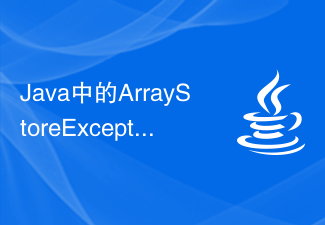我们经常给 String,Function,Array 的原型加上自定义的扩展函数,比如去除字符串空格,数组排序等
今天重点讲下 如何给Array对象扩展
1、直接在Array.prototype 上扩展
2、用自己方法对数组对象进行扩展
直接在Array.prototype上扩展,不能直接对dom对象使用(如:document.getElementsByTagName('div')得到的nodeList);
对有洁癖的同学而言 也破了原始生态环境的 : )
先来看下 yui操作数组的一些方法,这里我对源码简单剥离并改动了下
(function(){
var YArray;
YArray = function(o,idx,arraylike){
var t = (arraylike) ? 2 : YArray.test(o),
l, a, start = idx || 0;
if (t) {
try {
return Array.prototype.slice.call(o, start); //借助Array原生方法来把aguments转换为JS数组
} catch(e) {
a = [];
l = o.length;
for (; start
}
return a;
}
} else {
return [o];
}
}
YArray.test = function(o){
var r = 0;
if (o && (typeof o == 'object' ||typeof o == 'function')) {
if (Object.prototype.toString.call(o) === "[object Array]") {
r = 1;
} else {
try {
if (('length' in o) && !o.tagName && !o.alert && !o.apply) {
r = 2;
}
} catch(e) {}
}
}
return r;
}
YArray.each = (Array.prototype.forEach) ? //先检测浏览器是否已支持,若有则调用原生
function (a, f, o) {
Array.prototype.forEach.call(a || [], f, o || Y);
return YArray;
} :
function (a, f, o) {
var l = (a && a.length) || 0, i;
for (i = 0; i < l; i=i+1) {
f.call(o || Y, a[i], i, a);
}
return YArray;
};
YArray.hash = function(k, v) {
var o = {}, l = k.length, vl = v && v.length, i;
for (i=0; i
o[k[i]] = (vl && vl > i) ? v[i] : true;
}
}
return o;
};
YArray.indexOf = (Array.prototype.indexOf) ?
function(a, val) {
return Array.prototype.indexOf.call(a, val);
} :
function(a, val) {
for (var i=0; i
return i;
}
}
return -1; //寻找不到的情况
};
YArray.numericSort = function(a, b) {
return (a - b); //从小到大排序, return (b - a); 从大到小
};
YArray.some = (Array.prototype.some) ?
function (a, f, o) {
return Array.prototype.some.call(a, f, o);
} :
function (a, f, o) {
var l = a.length, i;
for (i=0; i
return true;
}
}
return false;
};
})();
借助Array原生方法来把aguments转换为JS数组的其他方法 (Dom对象不可以,只有遍历)
Array.apply(null,arguments);
[].slice.call(arguments,0);
[].splice.call(arguments,0,arguments.length);
[].concat.apply([],arguments);
...
YArray函数不仅可以操作数组对象也对nodeList对象进行了操作
YArray(document.getElementsByTagName("div"));
遍历dom对象 重新组装成一个数组 : )
a = [];
l = o.length;
for (; start
}
return a;
YArray.each
遍历数组,如有传入函数,每次遍历都执行callback
YArray.each([1,2,3],function(item){
alert(item);// 执行了3次,1,2,3
});
YArray.hash
数组 组装成 键值对 可以理解成一个json对象
YArray.hash(["a","b"],[1,2]);
YArray.indexOf
返回(想要找寻值)一样的该值在数组的索引值
YArray.indexOf([1,2],1)
YArray.numericSort
对数组进行排序,从小到大
[3, 1, 2].sort(YArray.numericSort);
YArray.some
是否数组中的有元素通过了callBack的处理?如果有,则立马返回true,如果一个都没有,则返回false
YArray.some([3, 1, 2],function(el){
return el < 4;
})
让我们看看 javascript 1.6 -1.8 对数组的扩展 ,并学习如何实现相同的功能
every
filter
forEach
indexOf
lastIndexOf
map
some
reduce
reduceRight
Array.prototype.every
if (!Array.prototype.every)
{
Array.prototype.every = function(fun /*, thisp*/)
{
var len = this.length >>> 0;
if (typeof fun != "function")
throw new TypeError();
var thisp = arguments[1];
for (var i = 0; i < len; i++)
{
if (i in this &&
!fun.call(thisp, this[i], i, this))
return false;
}
return true;
};
}
是否数组中的每个元素都通过了callBack的处理?如果是,则返回true,如果有一个不是,则立马返回false
这和我们刚才提到的YUI种的 some 函数 很雷同 :) 功能刚好相反
Array.prototype.filter
Array.prototype.filter = function (block /*, thisp */) { //过滤器 ,添加方便,进行判断过滤
var values = [];
var thisp = arguments[1];
for (var i = 0; i < this.length; i++)
if (block.call(thisp, this[i]))
values.push(this[i]);
return values;
};
使用方法
var val= numbers.filter(function(t){
return t < 5 ;
})
alert(val);
forEach 和 indexOf 和 some 可以参考 上面yui的代码 ,不再重述
lastIndexOf 和 indexOf 代码相似 只是从最后开始遍历
下面讲下 ‘ map'
Array.prototype.map = function(fun /*, thisp*/) {
var len = this.length >>> 0;
if (typeof fun != "function")
throw new TypeError();
var res = new Array(len);
var thisp = arguments[1];
for (var i = 0; i < len; i++) {
if (i in this)
res[i] = fun.call(thisp, this[i], i, this);
}
return res;
};
遍历数组,执行函数,迭代数组,每个元素作为参数执行callBack方法,由callBack方法对每个元素进行处理,最后返回处理后的一个数组
var numbers = [1, 4, 9];
var roots = numbers.map(function(a){return a * 2});
Array.prototype.reduce
Array.prototype.reduce = function(fun /*, initial*/) {
var len = this.length >>> 0;
if (typeof fun != "function")
throw new TypeError();
if (len == 0 && arguments.length == 1)
throw new TypeError();
var i = 0;
if (arguments.length >= 2) {
var rv = arguments[1];
} else {
do {
if (i in this) {
rv = this[i++];
break;
}
if (++i >= len)
throw new TypeError();
} while (true);
}
for (; i < len; i++) {
if (i in this)
rv = fun.call(null, rv, this[i], i, this);
}
return rv;
};
让数组元素依次调用给定函数,最后返回一个值,换言之给定函数一定要用返回值
Array.prototype.reduceRight
见名故而思意,从右往左
Array.prototype.reduceRight = function(fun /*, initial*/) {
var len = this.length >>> 0;
if (typeof fun != "function")
throw new TypeError();
if (len == 0 && arguments.length == 1)
throw new TypeError();
var i = len - 1;
if (arguments.length >= 2) {
var rv = arguments[1];
} else {
do {
if (i in this) {
rv = this[i--];
break;
}
if (--i < 0)
throw new TypeError();
} while (true);
}
for (; i >= 0; i--) {
if (i in this)
rv = fun.call(null, rv, this[i], i, this);
}
return rv;
};
除了这些,只用想用到的方法都能加到Array.prototype上
比如常用的toString
Array.prototype.toString = function () {
return this.join('');
};
还可以添加 toJson ,uniq ,compact,reverse等
 使用C#中的Array.Sort函数对数组进行排序Nov 18, 2023 am 10:37 AM
使用C#中的Array.Sort函数对数组进行排序Nov 18, 2023 am 10:37 AM标题:C#中使用Array.Sort函数对数组进行排序的示例正文:在C#中,数组是一种常用的数据结构,经常需要对数组进行排序操作。C#提供了Array类,其中有Sort方法可以方便地对数组进行排序。本文将演示如何使用C#中的Array.Sort函数对数组进行排序,并提供具体的代码示例。首先,我们需要了解一下Array.Sort函数的基本用法。Array.So
 简单明了的PHP array_merge_recursive()函数使用方法Jun 27, 2023 pm 01:48 PM
简单明了的PHP array_merge_recursive()函数使用方法Jun 27, 2023 pm 01:48 PM在进行PHP编程时,我们常常需要对数组进行合并。PHP提供了array_merge()函数来完成数组合并的工作,不过当数组中存在相同的键时,该函数会覆盖原有的值。为了解决这个问题,PHP在语言中还提供了一个array_merge_recursive()函数,该函数可以合并数组并保留相同键的值,使得程序的设计变得更加灵活。array_merge
 如何使用PHP中的array_combine函数将两个数组拼成关联数组Jun 26, 2023 pm 01:41 PM
如何使用PHP中的array_combine函数将两个数组拼成关联数组Jun 26, 2023 pm 01:41 PM在PHP中,有许多强大的数组函数可以使数组的操作更加方便和快捷。当我们需要将两个数组拼成一个关联数组时,可以使用PHP的array_combine函数来实现这一操作。这个函数实际上是用来将一个数组的键作为另一个数组的值,合并成一个新的关联数组。接下来,我们将会讲解如何使用PHP中的array_combine函数将两个数组拼成关联数组。了解array_comb
 PHP array_fill()函数用法详解Jun 27, 2023 am 08:42 AM
PHP array_fill()函数用法详解Jun 27, 2023 am 08:42 AM在PHP编程中,数组是一种非常重要的数据结构,能够轻松地处理大量数据。PHP中提供了许多数组相关的函数,array_fill()就是其中之一。本篇文章将详细介绍array_fill()函数的用法,以及在实际应用中的一些技巧。一、array_fill()函数概述array_fill()函数的作用是创建一个指定长度的、由相同的值组成的数组。具体来说,该函数的语法
 Python中的Array模块怎么使用May 01, 2023 am 09:13 AM
Python中的Array模块怎么使用May 01, 2023 am 09:13 AMPython中的array模块是一个预定义的数组,因此其在内存中占用的空间比标准列表小得多,同时也可以执行快速的元素级别操作,例如添加、删除、索引和切片等操作。此外,数组中的所有元素都是同一种类型,因此可以使用数组提供的高效数值运算函数,例如计算平均值、最大值和最小值等。另外,array模块还支持将数组对象直接写入和读取到二进制文件中,这使得在处理大量数值数据时更加高效。因此,如果您需要处理大量同质数据,可以考虑使用Python的array模块来优化代码的执行效率。要使用array模块,首先需要
 Java中的ArrayStoreException异常的常见原因是什么?Jun 25, 2023 am 09:48 AM
Java中的ArrayStoreException异常的常见原因是什么?Jun 25, 2023 am 09:48 AM在Java编程中,数组是一种重要的数据结构。数组可以在一个变量中存储多个值,更重要的是可以使用索引访问每个值。但是在使用数组时,可能会出现一些异常,其中之一是ArrayStoreException。本文将讨论ArrayStoreException异常的常见原因。1.类型不匹配数组在创建时必须指定元素类型。当我们试图将不兼容的数据类型存储到一个数组中时,就会抛
 Java中的ArrayIndexOutOfBoundsException异常常见原因是什么?Jun 24, 2023 pm 10:39 PM
Java中的ArrayIndexOutOfBoundsException异常常见原因是什么?Jun 24, 2023 pm 10:39 PMJava是一种非常强大的编程语言,广泛应用于各种开发领域。但是,在Java编程过程中,开发人员经常会遇到ArrayIndexOutOfBoundsException异常。那么,这个异常的常见原因是什么呢?ArrayIndexOutOfBoundsException是Java中常见的一个运行时异常。它表示在访问数据时,数组下标超出了数组的范围。常见的原因包括以
 PHP array_flip()函数用法介绍Jun 27, 2023 am 08:24 AM
PHP array_flip()函数用法介绍Jun 27, 2023 am 08:24 AMPHP语言是一种广泛应用的Web编程语言,在开发Web应用程序期间,数组是一个非常常用的数据结构。数组里的键-值对可以让程序员方便地组织和管理数据。PHP的array_flip()函数是非常有用的一个函数,它可以将数组的键和值交换,把原来的键作为值,原来的值作为键。本文将向您介绍PHP的array_flip()函数用法及其在实际编程中的应用。array_fl


热AI工具

Undresser.AI Undress
人工智能驱动的应用程序,用于创建逼真的裸体照片

AI Clothes Remover
用于从照片中去除衣服的在线人工智能工具。

Undress AI Tool
免费脱衣服图片

Clothoff.io
AI脱衣机

AI Hentai Generator
免费生成ai无尽的。

热门文章

热工具

SublimeText3 Mac版
神级代码编辑软件(SublimeText3)

DVWA
Damn Vulnerable Web App (DVWA) 是一个PHP/MySQL的Web应用程序,非常容易受到攻击。它的主要目标是成为安全专业人员在合法环境中测试自己的技能和工具的辅助工具,帮助Web开发人员更好地理解保护Web应用程序的过程,并帮助教师/学生在课堂环境中教授/学习Web应用程序安全。DVWA的目标是通过简单直接的界面练习一些最常见的Web漏洞,难度各不相同。请注意,该软件中

SecLists
SecLists是最终安全测试人员的伙伴。它是一个包含各种类型列表的集合,这些列表在安全评估过程中经常使用,都在一个地方。SecLists通过方便地提供安全测试人员可能需要的所有列表,帮助提高安全测试的效率和生产力。列表类型包括用户名、密码、URL、模糊测试有效载荷、敏感数据模式、Web shell等等。测试人员只需将此存储库拉到新的测试机上,他就可以访问到所需的每种类型的列表。

Atom编辑器mac版下载
最流行的的开源编辑器

ZendStudio 13.5.1 Mac
功能强大的PHP集成开发环境





